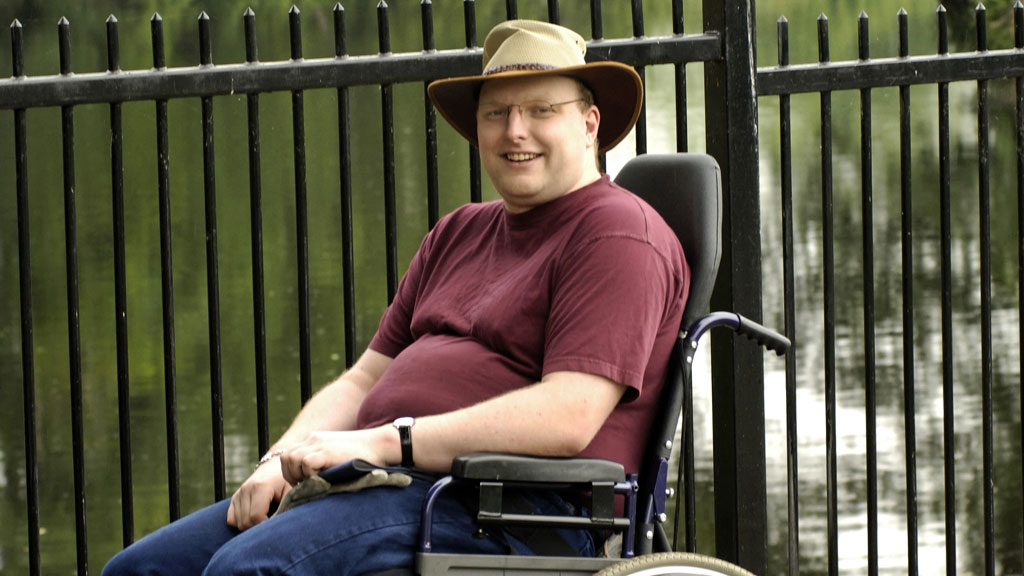No Go Britain: wheelchair user wins landmark victory
A disabled man wins a discrimination case against a transport company which refused to let him board a bus because a parent with a buggy was occupying the wheelchair space, writes Kate Ansell.

Doug Paulley, pictured above, was travelling from Wetherby to Leeds in February 2012 when he was denied access to the bus. He waited for the next vehicle, but arrived late to his destination, and missed the train he was intending to catch.
At the time, First Buses had a “first come, first served” policy regarding the wheelchair space, meaning if the space was already occupied by a buggy user, the driver could not insist they move if a wheelchair user wished to board, and vice versa.
A judge at Leeds county court has now ruled this policy contravenes the Equality Act, which requires that service providers treat disabled customers equally.
I hope this forces them to make a change so the wheelchair space starts to become a right rather than a nice thing to have. Doug Paulley
He decided that wheelchair users must have priority over non-disabled passengers when it comes to the wheelchair space. In his ruling, the judge said: “Although such a policy might inconvenience a mother with a buggy, that, I am afraid, is a consequence of the protection which parliament has chosen to give to disabled wheelchair users and not to non-disabled mothers with buggies.”
Conflict
Regular bus traveller Mr Paulley has been awarded £5,500 damages. He was represented by Unity Law.
He told Channel 4 News that he brought the case because the incident was not the first time he has had a problem on a bus, and the incident has caused him to lose confidence when travelling.
“It’s not just the practical difficulties, it’s the constant potential for interpersonal conflict when I get on a bus,” he said. “I hope the case leads to a cultural shift and to bus companies being much more proactive, enforcing this in the same way they would enforce any other anti-social behaviour on a bus.”
The problem of shared spaces, or buggy users occupying wheelchair spaces, was one of the most common complaints Channel 4 News heard from disabled passengers during our award-winning No Go Britain series, exposing the daily problems disabled people can have accessing public transport.
Several bus companies across the UK have similar “first come, first served” policies in place, but others attempt to give wheelchair users priority.
Transport for London has recently run a poster campaign asking parents with buggies to vacate the wheelchair space if a disabled passenger needs it.
Disappointed
First Bus has been given six months to act on the judgement. A spokesperson told Channel 4 News: “At First we do recognise how important it is that bus services are accessible to all and our drivers across the country are trained to act in accordance with the law in this area. We are disappointed in the judgment and will take time to consider the findings.”
Mr Paulley said: “I hope this forces them to make a change so the wheelchair space starts to become a right rather than a nice thing to have.”
-
Latest news
-
Fans react to football clubs increasing season ticket prices4m

-
‘We’re still a long way from justice’, says infected blood scandal victim5m

-
Infected blood scandal: Victims set to receive billions of government compensation7m

-
Iran’s president and foreign minister missing after helicopter crash3m

-
Yungblud launches his own affordable music festival5m

-





